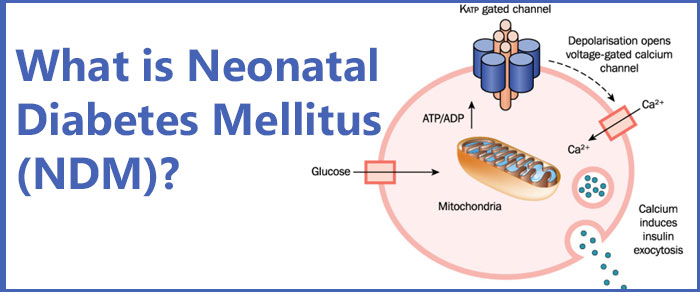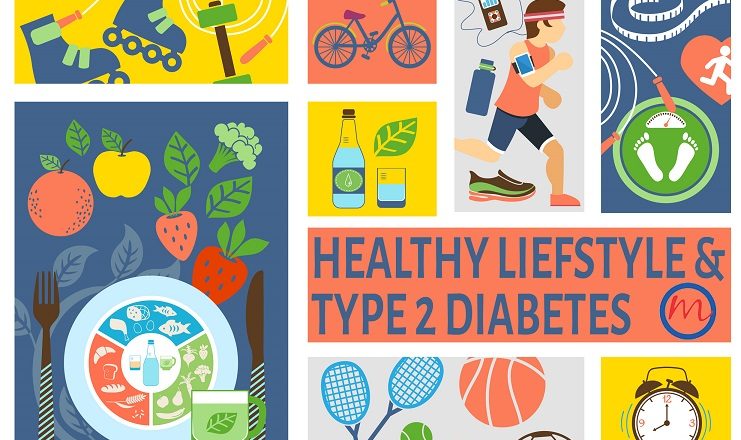Neonatal Diabetes Mellitus
We all have heard of diabetes occurring in children. The usual type of diabetes which occurs in children and adolescence is, what is called as ‘Type 1 diabetes’, previously called as ‘Insulin dependent diabetes mellitus’ or ‘IDDM’. Children with type 1 diabetes have an acute onset of the condition and rapidly become insulin dependent. Their pancreatic insulin reserve goes down to near zero and there afterwards they need lifelong insulin injections to maintain life and good health. However, there is another form of diabetes which occurs in infants and neonates. This is called as ‘Neonatal Diabetes Mellitus’ or ‘NDM’ and it typically occurs before the first 6 months of age, although occasionally it can occurupto 1 year of age. Onset of NDM beyond 1 year of age is very unusual, and in all such cases, it is most likely to be ‘Type 1 diabetes’.
Why should we know about Neonatal Diabetes and how does it differ from type 1 diabetes?
Neonatal Diabetes is classified under ‘Monogenic’ forms of diabetes which means it is due to a mutation of agene. Mutations in several genes can be involved in causing neonatal diabetes. There are 2 main forms
1) Transient neonatal diabetes (TNDM) and
2) Permanent neonatal diabetes (PNDM).
Transient neonatal diabetes (TNDM) : TNDMsets in before six months of age but usually before the first birthday the child recovers and the diabetes seems to go away. In many cases, however, during adolescence or early childhood, the diabetes may come back. But until then, there is no evidence of the diabetes. TNDM is due to specific mutations in certain genes and knowledge about which mutation the child is suffering from, helps to decide the prognosis as well as to accurately classify the child. In our experience at the Madras Diabetes Research Foundation (MDRF), we have seen only a very few cases of TNDM and most of the cases referred to us have had the Permanent Neonatal Diabetes .
Permanent Neonatal Diabetes (PNDM): In PNDM the diabetes again sets usually before 6 months of age, but unlike TNDM, the diabetes continues even beyond the first birthday and is usually lifelong.
Why should one know about neonatal forms of diabetes ?
As mentioned above, neonatal diabetes is due to mutations in specific genes. The common genes which are affected in neonatal diabetes are the KCNJ11 gene, the ABCC8 gene, the INS gene, theGATA gene, etc., The vast majority of neonatal diabetes have mutations either in the KCNJ11 gene or in the ABCC8 genes. Children having mutations in these genes can respond to an oral sulphonylurea(SU) tablet and insulin injections may not be necessary at all. In our experience of the several hundred cases of neonatal diabetes referred to us, the majority have either the KCNJ11 mutation or the ABCC8 mutation. It is very gratifying that these children who were on insulin prior to being referred to us and before an accurate genetic diagnosis being made at our centre, were put on insulin by their physicians but after the accurate diagnosis of neonatal diabetes was made, the insulin injections were stopped and they were switched over to oral sulphonylurea agents. We have had such patients referred to us from all parts of India.
To the children and their parents, it is nothing short of a miracle when a child who was diagnosed to have diabetes was told to take insulin injections several times a day throughout life, can now go off insulin injections. Indeed, the oral sulphonylrea agents respond even better than insulin.
The other very gratifying aspect of diagnosing neonatal diabetes is that very often these children have other associated abnormalities like developmental delay and delayed milestones, neurological deficits and even epileptic fits because the same mutations are seen in other organs like the nervous system and once the child is started on the sulphonylurea agent, the neurological symptoms may also remit.
In 2012, we reported on our first series of cases of neonatal diabetes (1). Thereafter, we have seen several hundred cases of neonatal diabetes at our centre, who were referred to us from various parts of the country.
Figure 1:
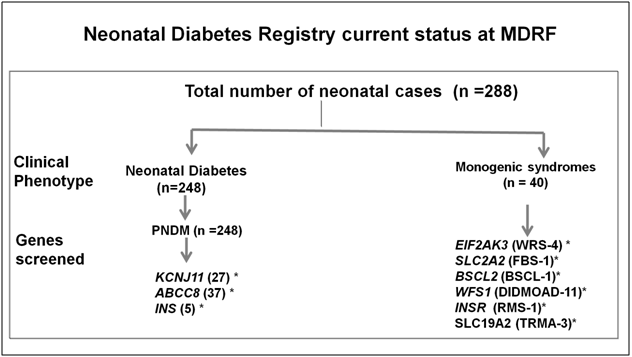
Table 1 : CASE STUDY OF A CHILD WITH NEONATAL DIABETES
- 28 day old child with high blood sugar was diagnosed as Type 1Diabetes by her physician and administered multiple daily dose of insulin.
- Came to our centre for a second opinion. Genetic testing done. Identified a mutation in KCNJ11 gene, p. Gly334 Val, c.1001G>T. This causes Permanent Neonatal Diabetes.
- Insulin was stopped and the child was shifted to Sulphonylurea tablets.
- Now she is completely off insulin and only on tablets.
- This is an example of successful transition to SU therapy from insulin in PNDM patient after finding a genetic defect .
Figure 2
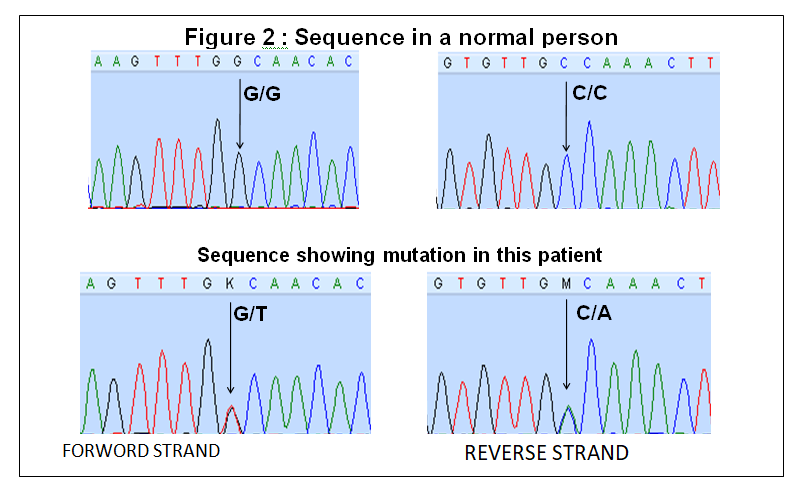
Figure 3
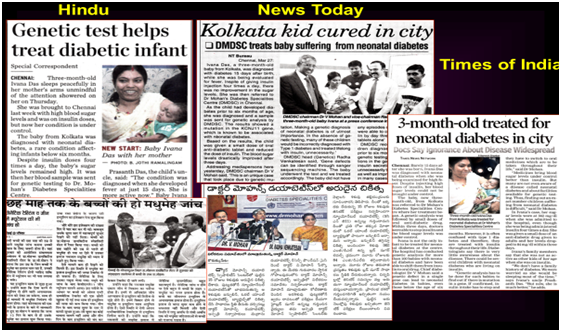
If you know of any child whose diabetes was diagnosed before 6 months of age or even I year, do get in touch with us so that we may be able to help the child and the family by doing a genetic test. We would be happy to carry out this genetic test free of cost on humanitarian grounds. This also applies to all patients with diabetes diagnosed before 1 year of age, irrespective of their current age. For more information, kindly visit our website http://www.monogenicdiabetes.in & www.mdrf.in which will give you details about how to send the blood samples for neonatal diabetes genetic testing.
DR.V. MOHAN,
Chairman & Chief Diabetologist Dr. Mohan’s Diabetes Specialities Centre & Director & Chief of Diabetes Research, Madras Diabetes Research Foundation
and
DR. RADHA VENKATESAN,
Executive Scientific Officer & Head, Dept. of Molecular Genetics
Madras Diabetes Research Foundation, Chennai, India
Reference :
Jahnavi S, Poovazhagi V, Mohan V, Bodhini D, Raghupathy P, Amutha A, Suresh Kumar P, Adhikari P, Shriraam M, Kaur T, Das AK, Molnes J, Njolstad PR, Unnikrishnan R, Radha V. Clinical and molecular characterization of neonatal diabetes and monogenic syndromic diabetes in Asian Indian children. Clin Genet. 2013;83:439–45
Please fill the Neonatal Registration form before sending samples.
Send blood samples to:
Molecular Genetics Department,
Madras Diabetes Research Foundation,
4, Conran Smith Road, Gopalapuram, Chennai-600 086, India.
Tel. +91 43968888 Ext: 8321/ +91 33505555 Ext:509
Contact Numbers :
09840106815 : Dr.RadhaVenkatesan
09884776545 : Dr.S. Kanthi Mathi
09940373069 : Dr.Amutha Anandakumar
For details contact :
Dr. Mohan’s Diabetes Specialities Centre & Madras Diabetes Research Foundation
4, Conran Smith Road,
Gopalapuram,
Chennai-600 086. India
Ph: (91 -44) 43968888
Fax : (91-44) 28350935
E-mail : drmohans@diabetes.ind.in

